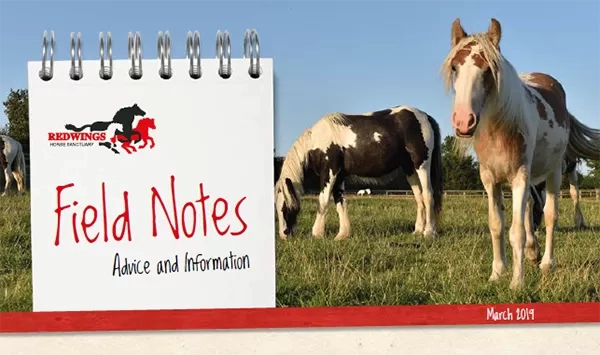08 April 2019

The latest addition to Redwings’ ‘Field Notes’ series of practical information leaflets looks at the topical issue of infectious disease.
Our award-winning Stamp Out Strangles campaign is working hard to help tackle the UK’s most common equine infectious disease, but, as the high number of equine flu outbreaks has reminded us this year, there are other conditions that also present a serious threat to horse health and equestrian activities.
Field Notes: infectious disease provides an overview of the most common of these conditions, including strangles, equine flu, equine herpes virus and ringworm. There is also a practical ‘infectious disease action plan’ to help owners be proactive about keeping their horses healthy.
Download your free copy by clicking here. (PDF 2.6 MB)
The leaflet also packs in answers to common questions about vaccination, top tips, a checklist for setting up an effective quarantine area and the story of Redwings’ resident Paddy and his snotty nose!
Infectious disease can be a real source of anxiety for horse owners, but simple steps can make a big difference to reducing the risk of disease being picked up or passed on by your horse. Download your free copy of Field Notes: infectious disease for achievable ideas and practical information that can help you stay a step ahead of infectious disease.
If you are worried about the current health of your horse, an outbreak in your area, or would like more information about infectious diseases, always speak to your vet.

Redwings Press Office
Find out more about Redwings Press Office



